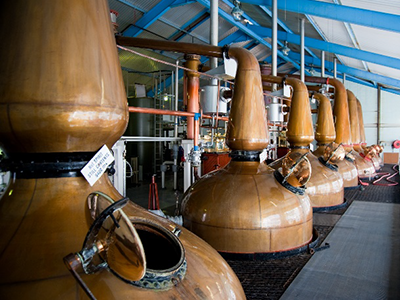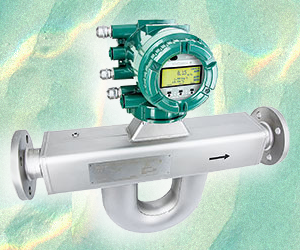
Case Study: Accurate whiskey flow and controlled measurements at blending and distilling points
Mike Edwards
Features Coriolis flowmeters video Yokogawa Whiskey distillery and blending, measurement and flow control example.
Whiskey distillery and blending, measurement and flow control example. In the food and beverage industry, government regulations for whisky production require compliance of distillation strengths to strict limits. To meet the regulations, one distillery required an online alcohol percentage meter to curb the costly and sometimes time-consuming collection of samples, which they had used in the past.
This particular distillery produces both malt and grain whiskies on the same site, which is rare as a distillery normally only produces one type of whisky. The distillery handles the entire production process from milling the raw ingredients through to maturation and final blending.
Due to the international success of the distillery’s whisky brand, they decided to expand production. As a spirit manufacturer, this producer is liable for the payment of excise duties. They sought the services of a chemical engineering specialist in the design and supply of equipment and services to the beverage industry, with the necessary expertise in ethanol plant specialization, and were keen to commission a turnkey solution. Yokogawa was contracted by the chemical engineering specialist for the installation and commissioning of a Rotamass TI Coriolis flowmeter for the distilling process.
Watch Rotamass series video introduction:
Challenges
Most whiskies at the distillery contain grain whisky made from corn that is mashed, fermented, distilled, and matured for at least three years at 66 percent/volume strength. The full-strength product that exits the distillation column passes through a flowmeter at 94.3 percent/volume and is closely controlled and logged. After the cask maturation process, the product is also blended with the use of a flowmeter and is then ready for offsite bottling.
The measuring points for distilling and blending are, therefore, crucial during the process in which accuracies rate of 0.6 percent are required. During the distillation phase, the process must be controlled through a flowmeter at 94.3 to 94.6 percent/volume and exactly 43.0 percent at the bottling phase.
Solution
 Yokogawa’s Rotamass TI Coriolis mass flowmeter is well-matched for the application with its density calibration for ethanol or water percentage and a special calibration for maximum accuracy and stability.
Yokogawa’s Rotamass TI Coriolis mass flowmeter is well-matched for the application with its density calibration for ethanol or water percentage and a special calibration for maximum accuracy and stability.
The mass flow meter’s dual bent tube technology and advanced software enabled the customer to measure the very small and sensitive range required. Yokogawa commissioned the mass flowmeter onsite to ensure the correct installation and commissioning from the outset, affording Total Insight through the entire product lifecycle.
In the last decade, the use of Coriolis meters has been changing from general-purpose to support of customers’ needs in specific applications. While the technological complexity increased, the demand for simple operation and handling remained an important requirement.
Key Advantages
- Stringent monitoring and auditing of levels to accurately and consistently pass all audits
- Improved accuracy of density, mass, temperature, and flow measurements
- Dual bent tubes provide accurate and stable measurements within small, sensitive ranges.
This article was contributed by Yokogawa Corporation.
Print this page